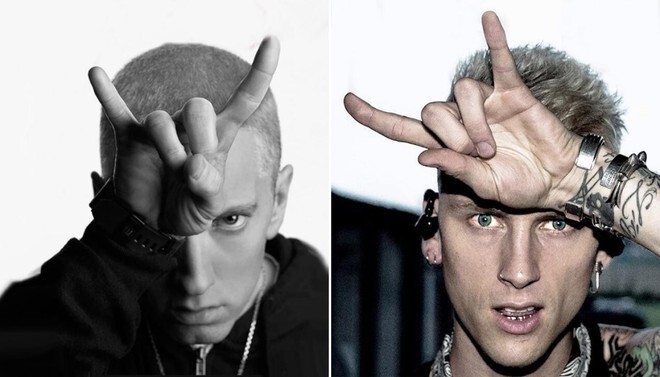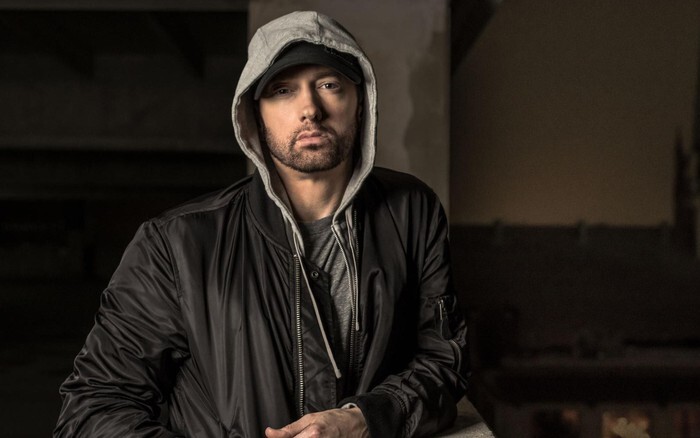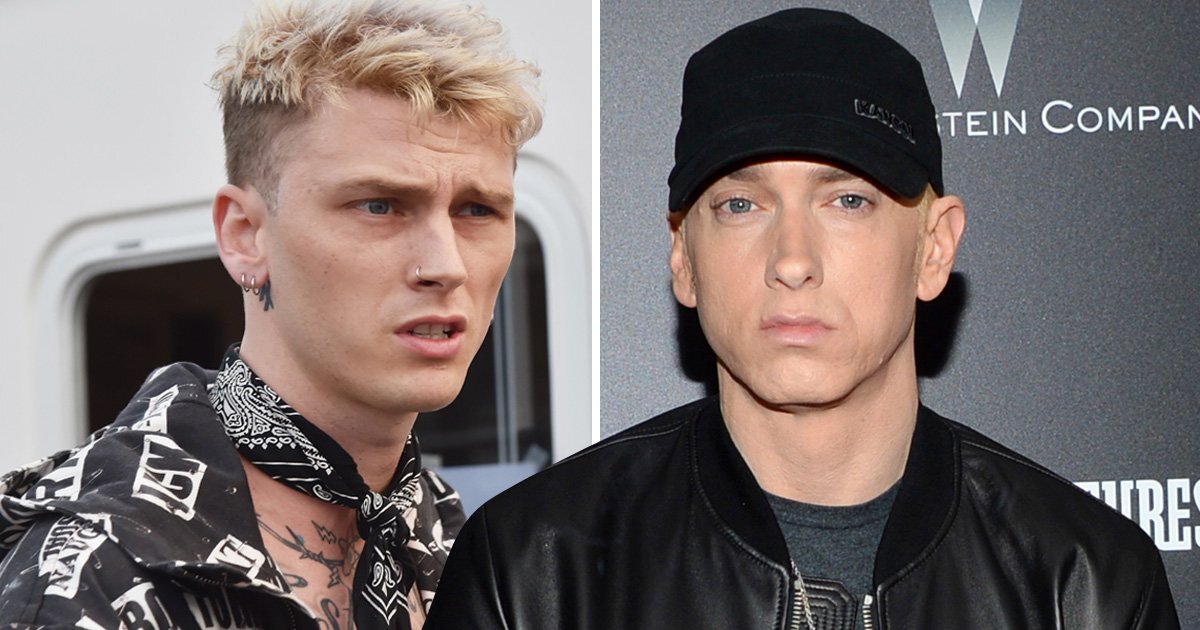In the ever-evolving landscape of hip-hop, feuds have become a staple, generating buzz and interest like nothing else. One of the most electrifying and headline-grabbing rivalries in recent memory is the explosive clash between rap titans Eminem and Machine Gun Kelly (MGK). This intense beef, ignited through scorching diss tracks and amplified by the wildfire of social media, not only fueled massive public intrigue but also cast a spotlight on each artists burgeoning career. A question lingers: Did this fiery conflict serve as a rocket, launching both rappers to extraordinary levels of wealth and success?

Our story begins in 2018, a year that marked a pivotal point for both artists. Eminem, who is celebrated worldwide as one of the all-time greats in the rap genre, set the stage by dropping a surprise album, Kamikaze. The album featured the track Not Alike, where Eminem threw lyrical jabs at MGK, reigniting a tension that had been simmering beneath the surface since 2012. MGK rose to the challenge, firing back with the blistering track Rap Devil, which quickly went viral and captivated millions. Not one to back down, Eminem retaliated with Killshot. This back-and-forth not only set fire to intense fan debates but also drove a dramatic uptick in streaming figures and media scrutiny, significantly boosting interest in both of their careers.
The ripple effect of their lyrical warfare was immediately apparent in the digital realm. Songs like Rap Devil and Killshot shattered viewership records on platforms like YouTube, garnering millions of views in an incredibly short span. This tidal wave of popularity translated into substantial streaming revenue and boosted sales of their respective music catalogs. Eminem’s Killshot quickly ascended to become one of the most-viewed hip-hop music videos in history, while MGKs Rap Devil earned accolades that cemented his stature within the rap community.

The outbreak of the feud had implications that went beyond just soaring streaming numbers. With increased visibility came a deluge of lucrative opportunities for both rappers. Eminem, already an industry juggernaut, witnessed a rejuvenated interest in his earlier works, leading fans to revisit his expansive back catalog. This upswing in activity translated to a spike in music sales and streaming income. Concurrently, his label, Shady Records, experienced a surge of attention, further solidifying Eminems indelible mark on the music industry.
For Machine Gun Kelly, the feud proved to be transformativetruly a turning point. Before the clash, while MGK enjoyed a loyal following, he was struggling to pierce the veil of mainstream recognition and achieve prominence comparable to Eminem. The feud proved to be a catalyst for change, dramatically raising his profile. This newfound fame translated into lucrative endorsement deals, heightened demand for concert tickets, and broader visibility for his music. The expanded exposure also enabled MGK to explore diverse career paths, making successful forays into acting and experimenting with musical styles beyond rap, most notably with his venture into pop-punk with the album Tickets to My Downfall.
According to industry analysts, the feud was a goldmine for both artists, offering substantial economic benefits and securing their place in contemporary music culture. The public’s fascination with their rivalry created a perfect storm of soaring media coverage, intense social media buzz, and elevated fan engagement, all of which worked in concert to bolster their earnings and enhance their long-term career prospects. It broadened their audiences and ensured their continued relevance in a rapidly evolving industry.
Nevertheless, while the feud ushered in significant financial gains, it also underscored the personal and artistic stakes that underpin such conflicts. Both Eminem and MGK used their powerful platforms to express authentic grievances and artistic critiques, reminding their fans and followers that beneath the spectacle and rivalry lay a profound commitment to their craft.

In summary, the explosive conflict that embroiled Eminem and Machine Gun Kelly not only elevated them to unprecedented levels of wealth and fame but also affirmed the compelling nature of hip-hop feuds. Their bitter yet intriguing rivalry delivered tangible financial rewards, enhancing their careers and amplifying their influence within the music world. As the dust begins to settle, both Eminem and MGK continue to thrive, with their contentious rivalry standing as a testament to the enduring power and allure of hip-hop feuds in shaping the careers of those who dare to partake in the lyrical battlefield.